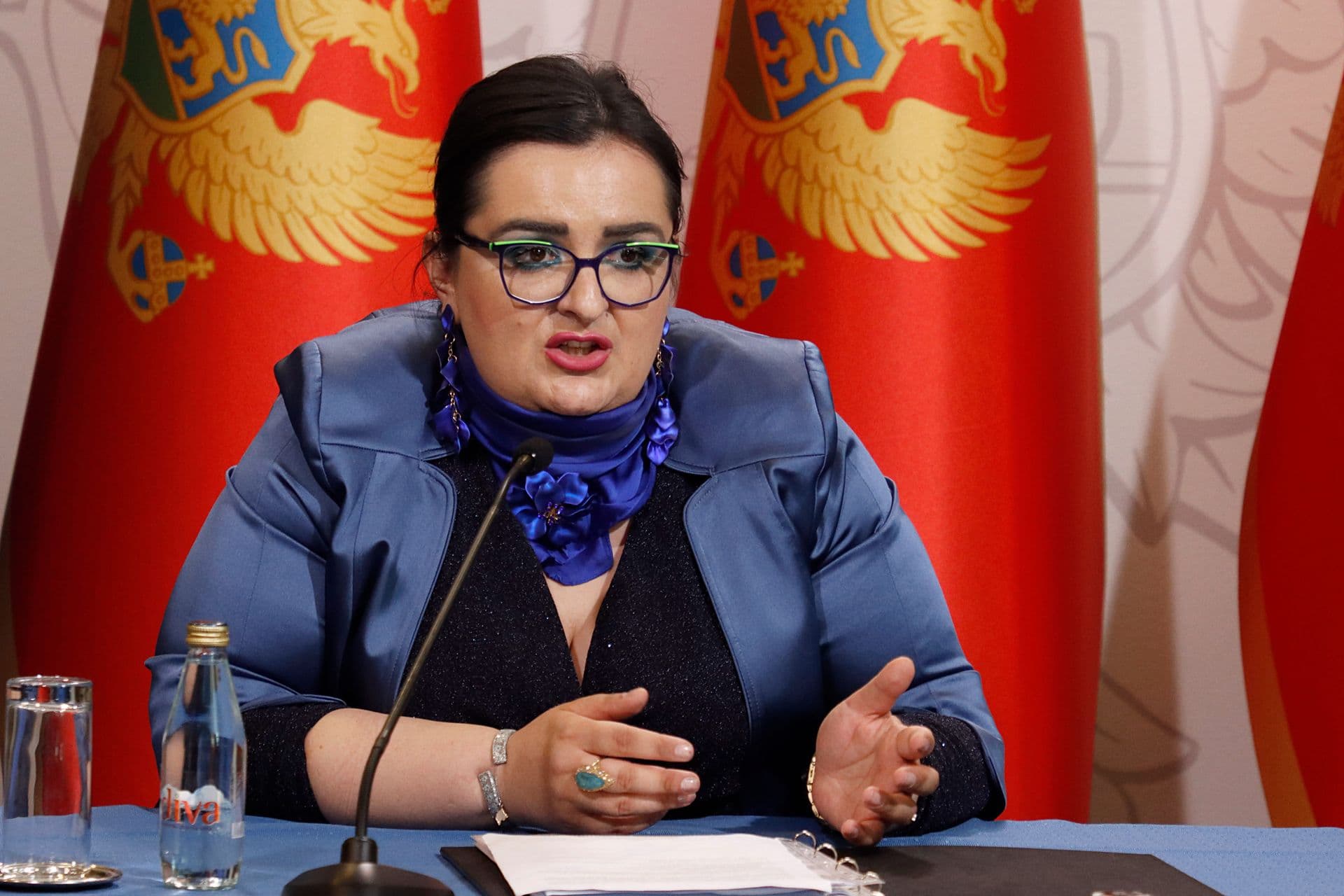Top Stories
Montenegro Strengthens Worker Protections Ahead of Labor Day

Montenegro is taking significant steps to enhance worker protections as it prepares for the upcoming International Labor Day. Minister of Labor and Social Welfare, Naida Nišić, emphasized that dignified work is defined not only by wages but also by predictable working conditions and protections mandated by the labor inspection. Her remarks came during a panel discussion titled “Dignified Work: Challenges and Perspectives in Montenegro,” highlighting the nation’s progress in labor rights and the ongoing challenges it faces.
During the event, Nišić noted that Montenegro has made visible advancements in ensuring dignified work. The minimum wage saw increases from €450 to €600, and then to €800, while improvements have also been made regarding internship work and employee rights. Despite these gains, she stressed that dignified work encompasses more than just salary; it involves clear conditions of employment and robust protections for employees.
Aligning with EU Standards
Nišić highlighted that many legal solutions related to labor and social policy are currently under consideration by the European Commission. The adoption of these solutions will aid Montenegro in aligning its legislation with EU standards and enhance employee protections. She announced upcoming amendments to the Law on Protection from Workplace Harassment, which will further strengthen protections against mobbing.
“We will establish a working group to ensure that all employees in Montenegro are protected from mobbing and other forms of harassment,” Nišić stated. She expressed confidence that collaborative efforts will lead to a system that guarantees dignified work and a better future for all citizens of Montenegro.
The head of cooperation at the EU Delegation in Montenegro, Bernard Brunet, expressed optimism that Montenegro could become the 28th member of the European Union by 2028. He described this goal as ambitious yet realistic, underscoring the importance of commitment to the integration process, which not only involves responsibilities but also offers numerous benefits, including economic, social, and institutional advantages.
Brunet emphasized the challenging yet essential process of harmonizing legislation with European law. He reaffirmed the EU’s support for Montenegro in building these capacities, noting that social rights are fundamental to the EU’s framework and are clearly defined in its treaties and the Charter of Fundamental Rights.
Addressing Workplace Complaints
Concerns about workplace rights were also addressed by Tatjana Radović-Todorović, Deputy Protector of Human Rights and Freedoms in Montenegro. She highlighted that the right to work is a fundamental human right and noted that 30 to 40 percent of complaints received are related to violations of labor rights.
Radović-Todorović pointed out that Montenegro, like many countries in the region and Europe, faces numerous challenges, particularly regarding insecure forms of employment, such as temporary contracts or work without formal agreements. Young people, women, individuals with disabilities, members of minority communities, and migrant workers are often the most affected.
She underscored that young people frequently begin their careers under unstable contracts, low salaries, or through volunteer work, which encourages emigration. In contrast, older individuals often encounter age discrimination. Radović-Todorović also raised concerns about frequent complaints related to stress, pressure, and mobbing in the workplace.
“The announced amendments to the Law on Protection from Workplace Harassment are welcome, as proving mobbing in practice is often very difficult and legal proceedings can be lengthy, typically favoring employers,” she stated.
In conclusion, Radović-Todorović reminded attendees that social dialogue is the foundation of dignified work. She referenced the European Social Charter, which mandates effective dialogue between employers and trade unions, emphasizing the importance of union organization and employee participation in shaping labor policies.
Montenegro’s ongoing efforts to strengthen labor rights and protections highlight its commitment to addressing the needs of its workforce while striving for alignment with European standards.
-

 Health3 months ago
Health3 months agoNeurologist Warns Excessive Use of Supplements Can Harm Brain
-

 Health3 months ago
Health3 months agoFiona Phillips’ Husband Shares Heartfelt Update on Her Alzheimer’s Journey
-

 Science1 month ago
Science1 month agoBrian Cox Addresses Claims of Alien Probe in 3I/ATLAS Discovery
-

 Science1 month ago
Science1 month agoNASA Investigates Unusual Comet 3I/ATLAS; New Findings Emerge
-

 Science4 weeks ago
Science4 weeks agoScientists Examine 3I/ATLAS: Alien Artifact or Cosmic Oddity?
-

 Entertainment4 months ago
Entertainment4 months agoKerry Katona Discusses Future Baby Plans and Brian McFadden’s Wedding
-

 Science4 weeks ago
Science4 weeks agoNASA Investigates Speedy Object 3I/ATLAS, Sparking Speculation
-

 Entertainment4 months ago
Entertainment4 months agoEmmerdale Faces Tension as Dylan and April’s Lives Hang in the Balance
-

 World3 months ago
World3 months agoCole Palmer’s Cryptic Message to Kobbie Mainoo Following Loan Talks
-

 Science4 weeks ago
Science4 weeks agoNASA Scientists Explore Origins of 3I/ATLAS, a Fast-Moving Visitor
-

 Entertainment4 months ago
Entertainment4 months agoLove Island Star Toni Laite’s Mother Expresses Disappointment Over Coupling Decision
-

 Entertainment3 months ago
Entertainment3 months agoMajor Cast Changes at Coronation Street: Exits and Returns in 2025









